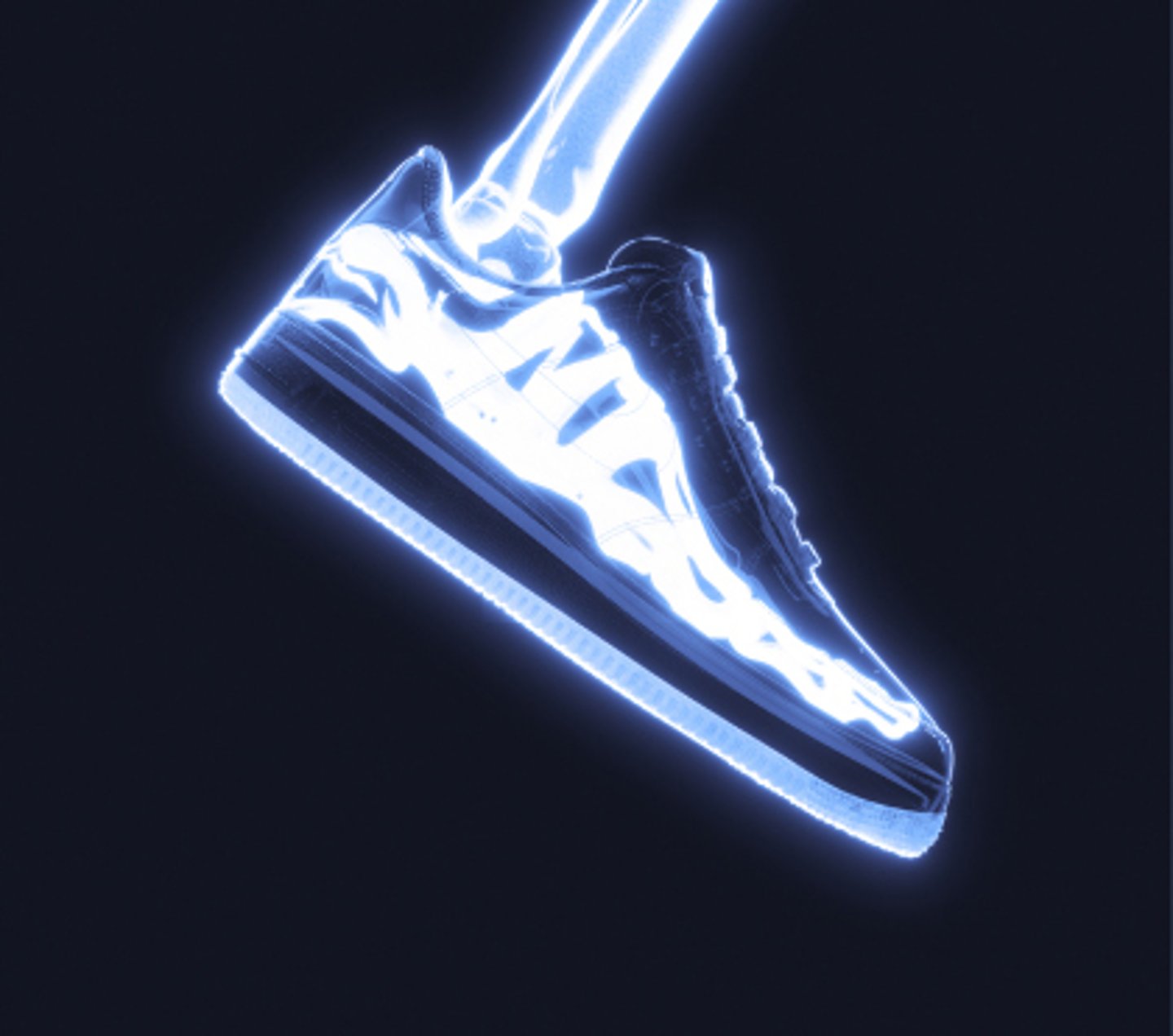Why Nike’s Web3 Foray Includes Consumer-Designed Virtual Products
Nike is marrying its consumer feedback loop with its virtual ambitions through the launch of its first member-inspired virtual products — a tactic that may work well for digital pioneers like itself but less so for other CPGs.
Though it doesn't explicitly identify them as NFTs, Nike’s Our Force 1 are digital creations that were influenced by members of .Swoosh, the company’s closed-beta Web3 membership platform dedicated to product development. Launched last November, the group includes more than 330,000 members, according to the company.
In addition to influencing virtual product development, .Swoosh members can display and trade virtual Nike products in games and experiences and compete in challenges. They also receive the ability to pre-order select products, receive invites to special events, and access special content.
What’s more, four .Swoosh members who submitted a creative brief as part of an online challenge will receive royalties for the virtual replicas of their ideas, the Business of Fashion reported.
The move is less a play on securing a competitive advantage and more about investing in a digital experience that may bear fruit tomorrow, Dipanjan Chatterjee, VP and principal analyst at Forrester, tells CGT. While it may make more sense for a brand to wait and see which types of digital interactions consumers prefer, Nike has the ability to act more boldly.
“For Nike, a brand defined by its leadership in experience, the right move is to hedge its bets and secure multiple options, and be perfectly positioned to strike when a technology emerges as dominant,” he says.
Though we can expect to see similar efforts from experience- and loyalty-driven brands — particularly the first movers — that list isn’t very long, Chatterjee notes. “But for other consumer goods that are in faster moving, less differentiated, higher churn categories, [such as] traditional CPG, food and beverage, similar initiatives will be more targeted towards creating awareness, salience, and cultural relevance, rather than reshaping the customer experience through digital innovation.”
Two “boxes” containing co-created items are available for members to purchase as part of this initial launch: The Classic Remix box and the New Wave box, each priced at $19.82. The 3D files are also included should consumers wish to customize them further, and both boxes throw in a digital Our Force 1 version of Nike’s Air Force 1.
Nike, the No. 9 publicly owned consumer goods company, also intends to introduce access to exclusive physical products or experiences with the products, while others will be able to access additional virtual creations.
“The .Swoosh initiative is a vehicle for enabling such communities that can play a tremendous role in stoking advocacy and innovation,” says Chatterjee. “Sometimes the most loyal customers are a brand’s worst and most useful critics. A platform like .Swoosh harnesses that customer energy in service of Nike.”
Virtual Progress
While excitement within the consumer goods industry surrounding Web3 and virtual commerce experiences has been tamped down, exploration remains, and Nike is neither new to virtual experiences nor consumer-inspired feedback.
And while few companies are successful at elevating their brands above their products, Nike is a leader, notes Chatterjee, and does an exceptional job at weaving consumer experience webs. “Increasingly, these are digital experiences, and everything from Nike’s direct digital shopping experience and its integration with the physical store, all the way to adjacencies like training apps are designed to establish the idea of a consistent, engaging, and empowering uber brand,” he adds.
Nike last month shared that its Design by Japan Air Max 1 '87 marked the first time it had leveraged consumer polling within its SNKRS mobile app within product development. In that case, it took about a year to bring the product from conception to delivery, a timeline praised by company leaders during an earnings call with investors.
Things can, of course, move much more quickly with virtual products. Nike acquired digital collectible startup RTFKT in 2021 and has been leveraging learnings from the company, which used blockchain and augmented reality to create digital sneakers and other virtual items. The company notes on its website that the two platforms are different, with .Swoosh more geared toward Web3 beginners, though it’s expected they will sometimes look to collaborate.







